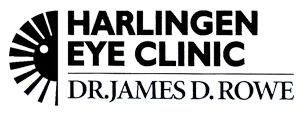
How Age-Related Macular Degeneration Could Affect Your Eyesight
Imagine how difficult life would be if you could no longer recognize faces, drive, or even complete a crossword puzzle due to a blank or blurry spot in your central vision. That's the reality that older Americans with age-related macular degeneration (AMD) face every day. The disease affects almost 20 million people in the U.S., according to BrightFocus Foundation, causing varying degrees of central vision loss.
AMD Affects the Central Part of the Retina
The retina, a layer of tissue at the back of the eye, converts the light rays that enter your eye into electrical impulses. The impulses travel to the brain through the optic nerve where they're processed and turned into images. Unfortunately, damage to the retina affects the transmission of these important impulses. If retinal cells are damaged, you may develop a blind spot in your vision or notice that things look blurry.
AMD affects the macula, the center part of the retina. The disease is called "age-related" macular degeneration because it most often affects people 50 and older. If you have AMD, blurry or blank spots in the middle of your visual field may begin to interfere with your eyesight.
No one is quite sure what causes AMD, although researchers believe that these factors, in addition to age, could increase your risk of developing the eye disease:
- Being Obese or Overweight
- A Family History of AMD
- Smoking
- High Blood Pressure
- Poor Nutrition
- Not Exercising Enough
- Light-Colored Irises
- Hyperopia (farsightedness)
Women are more likely to develop AMD because they typically have longer lifespans than men, according to the American Macular Degeneration Foundation.
AMD Symptoms and Types
Blurriness or a blind spot in your central vision aren't the only symptoms of AMD. If you have the eye disease, you may notice that recognizing your friends, reading, or spotting obstacles when you're driving becomes more difficult. You might also notice that straight edges and lines look wavy or warped.
Before those changes to your vision happen, yellow protein deposits called drusen may begin to form in your retina. Although you can't tell that you have drusen, your optometrist can see them during an eye exam.
Large drusen are the type that concern eye doctors the most, as they mean that you're at risk of developing advanced AMD, according to the American Academy of Ophthalmology (AAO). It could be a long time before you develop vision problems if you have small drusen, or you may never experience changes in vision, the AAO notes.
If you're diagnosed with AMD, your optometrist will tell you that you have either the wet or dry form of the disease. Wet AMD happens when blood or fluids leak from abnormal blood vessels that grow in your macula.
Abnormal blood vessels aren't present if you have dry AMD, the more common form of the disease. Instead, the cells in the macula begin to thin and eventually die. In some cases, dry AMD can turn into wet AMD as the disease progresses.
Treating AMD
There are no treatment options for dry AMD currently, although taking special supplements may be helpful. Called the AREDS2 formula, these supplements contain a combination of antioxidants that could lower the chance of vision loss. Several research projects are currently underway to find treatments for dry AMD.
Sealing leaking blood vessels is the goal of wet AMD treatments. Eye doctors use lasers or inject medications that seal leaking blood vessels and prevent new abnormal vessels from forming.
Are you worried about your AMD risk? Adopting healthy lifestyle habits and visiting the optometrist for annual eye exams will help you protect your vision. AMD Awareness Month, held every February, is the perfect time to schedule your appointment with our office. Give us a call to arrange your visit.
Sources:
BrightFocus Foundation: Age-related Macular Degeneration: Facts & Figures, 12/8/2022
https://www.brightfocus.org/macular/article/age-related-macular-facts-figures
American Macular Degeneration Foundation: Risk Factors for Macular Degeneration
https://www.macular.org/about-macular-degeneration/risk-factors
Investigative Ophthalmology & Visual Science: Is the Higher Incidence of ARMD in Hyperopia Versus Myopia Associated with Higher Intensity Light at the Retina?, 4/2011
https://iovs.arvojournals.org/article.aspx?articleid=2352536
American Academy of Ophthalmology: What Are Drusen?, 3/8/2022
